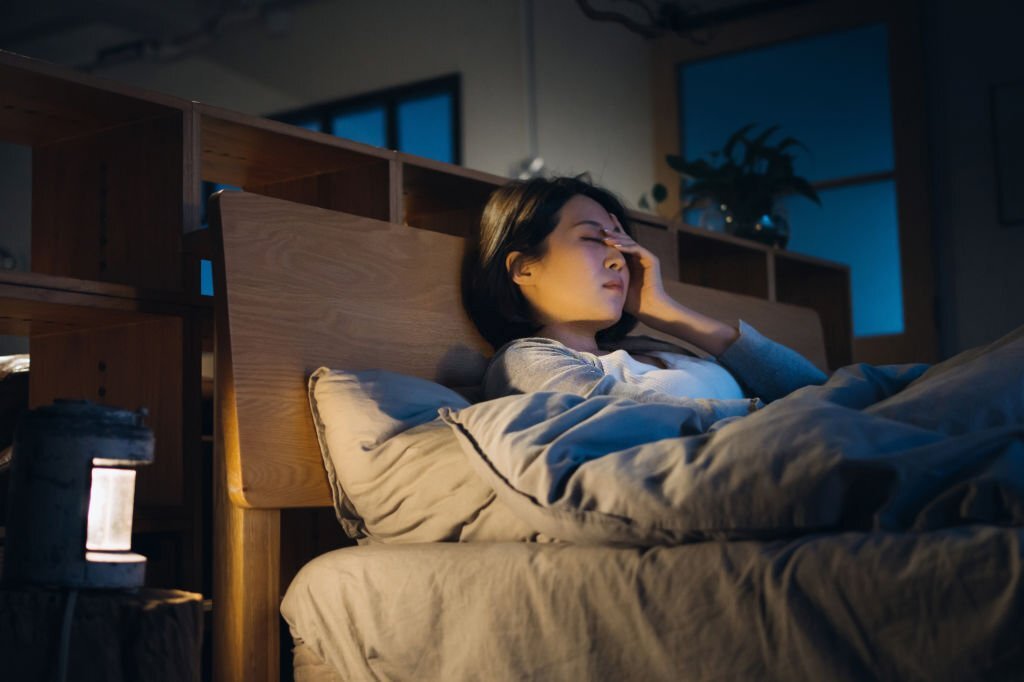Advertisements
Lack of sleep is a common issue with prevalent consequences, including fatigue, irritability, and poor concentration. But can lack of sleep cause nausea? Research has shown a connection between sleep deprivation and stomach/intestinal disorders that trigger nausea and related symptoms. Some studies indicate that individuals with insufficient sleep are more prone to these conditions.
When you are sleep-deprived, your body may produce excess stress hormones, disrupting digestion and inducing nausea. Moreover, it weakens the immune system, making it harder for the body to combat infections that can bring about nausea. Furthermore, fatigue and nausea may develop as a result of lifestyle factors, such as poor sleep or diet, or lack of exercise.
It’s crucial to recognize that not everyone suffering from sleep deprivation will experience nausea. The link between lack of sleep and nausea can differ from person to person, with stress and anxiety also playing a part. If you are experiencing persistent nausea or related symptoms, consult a healthcare professional to identify the root cause and suitable treatment.
Correlation Between Sleep and Nausea
Sleep and nausea often intersect in scientific research. Studies have shown that sleep deprivation is linked to stomach and intestinal disorders, raising the risk of nausea and related symptoms.
Advertisements
One theory suggests that insufficient sleep can trigger excess stress hormone production, impacting digestion and causing nausea, sometimes accompanied by fatigue and dizziness.
Insomnia and nausea can go hand-in-hand. Sleep disturbances can heighten the risk of conditions like hypertension, obesity, stroke, heart disease, and overall mortality. Insomnia’s effects on health can manifest in various ways, with nausea as a potential symptom.
Research, like a study in PMC, highlights how poor sleep quality and deprivation can lead to adverse health outcomes. Sleep dysfunction may contribute to the development or worsening of gastrointestinal diseases.
In summary, although more research is needed to fully grasp the sleep-nausea connection, it’s evident that a correlation exists. Individuals experiencing sleep troubles or signs of insomnia should consult their healthcare provider for strategies to enhance sleep quality and lower the risk of stomach and intestinal disorders that trigger nausea.
How Lack of Sleep Can Lead to Nausea
Sleep is crucial for good health, and sleep deprivation can lead to adverse effects, including nausea. Not everyone experiences nausea due to sleep deprivation, but it’s a common symptom for some.
Research has connected sleep deprivation to stomach and intestinal disorders that can induce nausea and other symptoms. In some studies, those with inadequate sleep had higher rates of such disorders. Sleep deprivation can trigger excess stress hormone production, affecting digestion and causing nausea.
Furthermore, sleep deprivation can disrupt hormone levels like leptin and ghrelin, which regulate appetite. Imbalances in these hormones can lead to overeating or undereating, contributing to nausea.
It’s important to recognize that individuals vary in their susceptibility to sleep-related nausea. If you’re experiencing nausea and suspect a link to sleep deprivation, consult a healthcare professional to rule out underlying medical conditions.
Effects of Sleep Deprivation
Impaired cognitive function
Lack of sleep might impair your capacity for clear thinking, concentration, and decision-making. Additionally, it may impair your mood and cause memory issues.
Increased risk of accidents
Lack of sleep can slow down your reaction time, which increases your risk of accidents while driving or using machinery.
Weakened immune system
Lack of sleep might make it harder for your body to fight against illnesses and infections.
Increased risk of obesity
Research has found that persons who don’t get enough sleep are more likely to be overweight or obese.
Increased risk of diabetes
Lack of sleep can interfere with your body’s capacity to control blood sugar levels, raising your chance of getting diabetes.
Increased risk of heart disease
Lack of sleep has been associated with an increased risk of heart disease and stroke.
Increased risk of depression and anxiety
Lack of sleep can have a negative impact on your mood.
Conclusion
Lack of sleep can lead to nausea in some individuals.
Sleep deprivation triggers the release of excess stress hormones, affecting digestion and causing nausea.
Inflammation in the intestines due to poor sleep can also contribute to this symptom.
Not everyone experiencing sleep deprivation will necessarily feel nauseous; other factors like anxiety, depression, or medications can induce nausea.
Consult a healthcare professional if you have persistent nausea.
To prevent sleep-related nausea, prioritize good sleep hygiene: establish a regular sleep schedule, avoid caffeine and alcohol before bedtime, and create a relaxing sleep environment.
Stress reduction techniques like meditation can improve sleep quality and reduce nausea risk.
